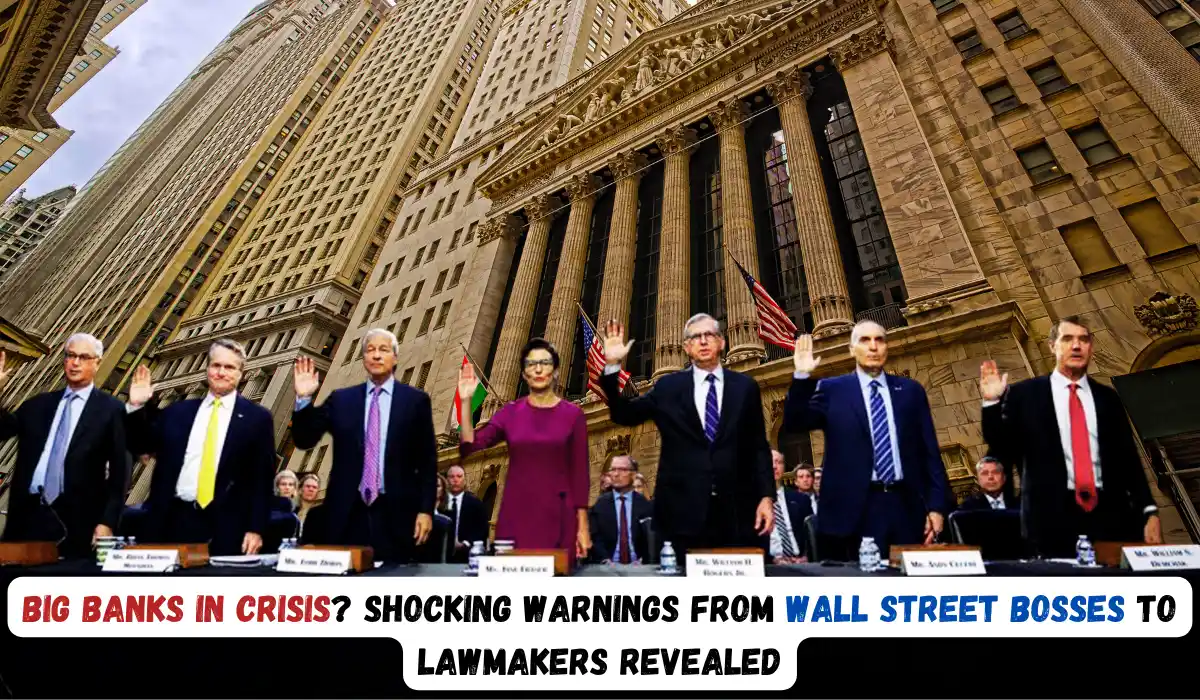Economic Mayhem Ahead: Wall Street Chiefs Drop Bombshell on New Regulations
Introduction
In a pivotal moment for the U.S. economy, the top executives of JPMorgan, Morgan Stanley, Citigroup, and other Wall Street giants are set to address the Senate Banking Committee. Their unified message: looming capital hikes and new regulations threaten to inflict severe damage on the economy. This article delves into the critical testimony that unveils their concerns and examines the potential ramifications for businesses and consumers.
The Basel Endgame Proposal: A Menacing Threat to Financial Stability
The “Basel Endgame” proposal, spearheaded by U.S. Federal Reserve-led bank regulators, emerges as a central point of contention. It aims to revamp how banks calculate their loss-absorbing capital. Jamie Dimon, CEO of JPMorgan, warns that the proposed increase of capital requirements by 20% to 25% for major banks could force them to either raise service charges or cease certain offerings. The consequences, he asserts, are far-reaching and inadequately studied by the Federal Reserve.
Alarming Lack of Economic Analysis in New Consumer Regulations
Dimon further critiques new consumer regulations, highlighting an “alarming” deficiency in rigorous economic analysis. As financial institutions brace for increased scrutiny, questions arise about the necessity and potential consequences of these regulations.
Regulatory Response: Necessity vs. Economic Impact
Regulators defend the proposed rules, citing the need to safeguard the banking system from unforeseen shocks. This justification gains urgency in the aftermath of three bank collapses earlier this year. However, Citigroup’s Fraser issues a cautionary note, urging against inadvertently destabilizing the financial system in response to what he deems as “isolated” bank failures.
CEOs’ Opportunity to Influence Decision-Makers
The impending Senate hearing provides a platform for the CEOs, including Brian Moynihan (Bank of America), Charles Scharf (Wells Fargo), David Solomon (Goldman Sachs), James Gorman (Morgan Stanley), Ronald O’Hanley (State Street), and Robin Vince (BNY Mellon). Their goal: to convince key moderate Democratic senators that the proposed rules could stifle lending, adversely impacting small businesses and consumers.
Gorman’s Assertive Stance: Basel Rules Deemed “Wholly Unnecessary”
James Gorman, Morgan Stanley’s CEO, asserts that the Basel rules are “wholly unnecessary.” He contends that these regulations not only harm the competitiveness of the U.S. economy but also divert activity towards less regulated sectors of the financial services industry.
Wells Fargo’s Confidence Amid Regulatory Scrutiny
Charlie Scharf, CEO of Wells Fargo, expresses confidence in the bank’s management. Despite operating under an asset cap and facing nine open consent orders from regulators due to a fake accounts scandal, Scharf believes the bank has the experience to address all risk, control, and regulatory issues.
The Need for Balanced Decision-Making
As the CEOs present their case, the call for balanced decision-making echoes. While regulations aim to fortify the financial system, the potential adverse effects on economic competitiveness and consumer access to services require careful consideration.
FAQs
Are the proposed Basel rules final?
The Basel rules are currently in the proposal stage and subject to further review and potential modifications.
How will the Basel rules impact consumers?
The rules may lead to increased service charges or alterations in the services offered by major banks, affecting consumers’ access to financial services.
Why do regulators emphasize the necessity of new rules?
Regulators argue that the rules, including capital hikes, are essential to protect the banking system from unforeseen shocks, particularly after recent bank collapses.
How does Wells Fargo plan to address regulatory challenges?
Wells Fargo’s CEO, Charlie Scharf, expresses confidence in the bank’s management, citing their ability to address all risk, control, and regulatory issues.
What are the potential consequences of new consumer regulations?
The CEOs criticize new consumer regulations for a lack of rigorous economic analysis, raising concerns about their potential impact on the financial industry.
How many CEOs are scheduled to appear before the Senate Banking Committee?
The CEOs of eight major banks, including JPMorgan, Morgan Stanley, Citigroup, Bank of America, Wells Fargo, Goldman Sachs, Morgan Stanley, State Street, and BNY Mellon, are scheduled to appear.
Conclusion
The Senate hearing provides a crucial juncture for shaping the trajectory of financial regulations. The concerns raised by the CEOs underscore the need for a comprehensive and balanced approach. As lawmakers deliberate on the proposed rules, the intricate interplay between economic stability, competitiveness, and consumer welfare hangs in the balance.



